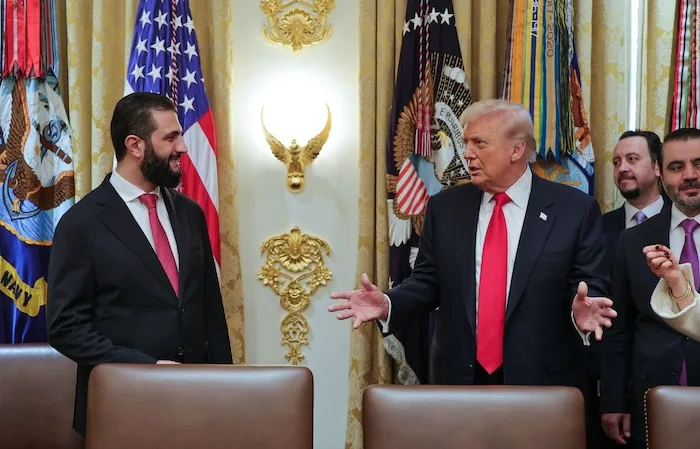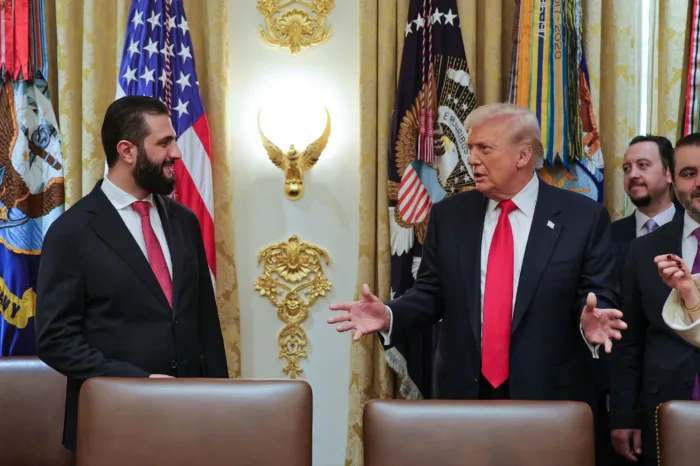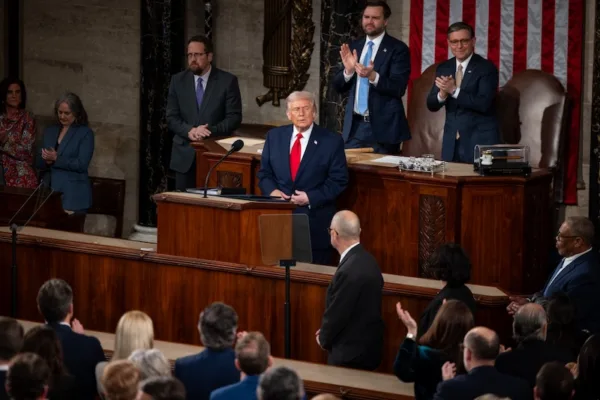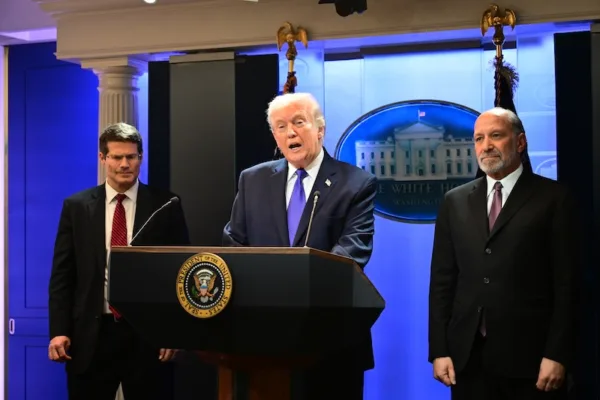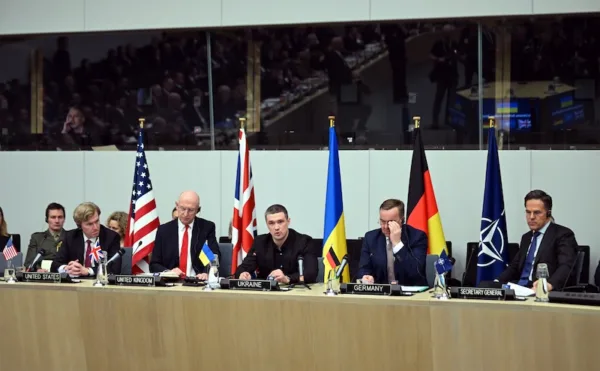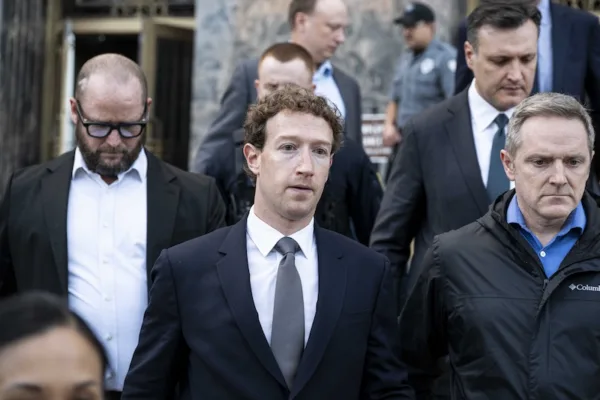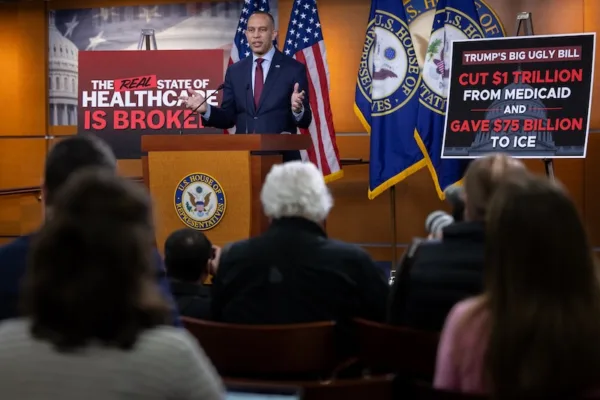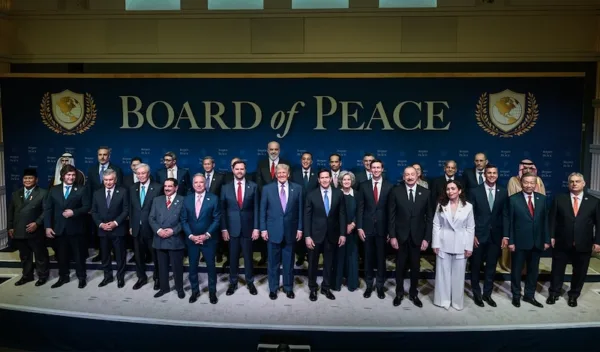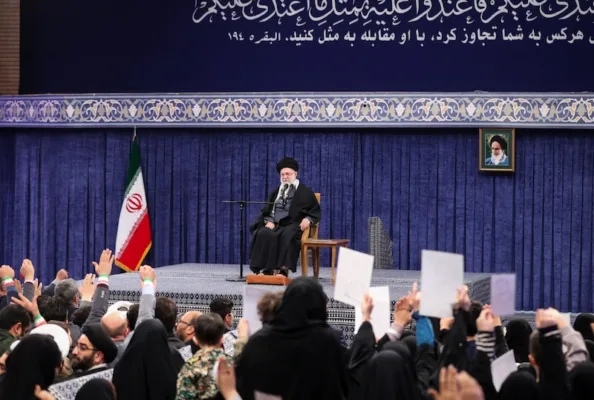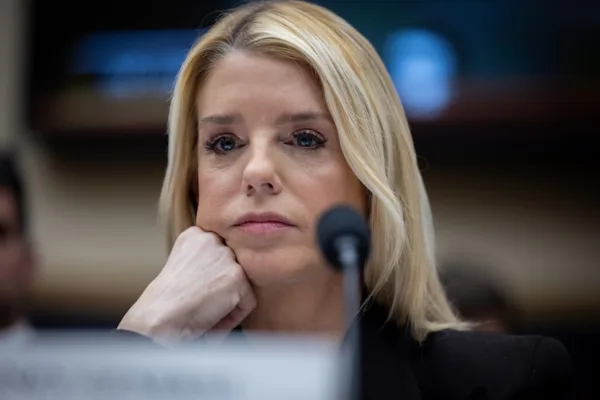U.S. – Turkey Relations
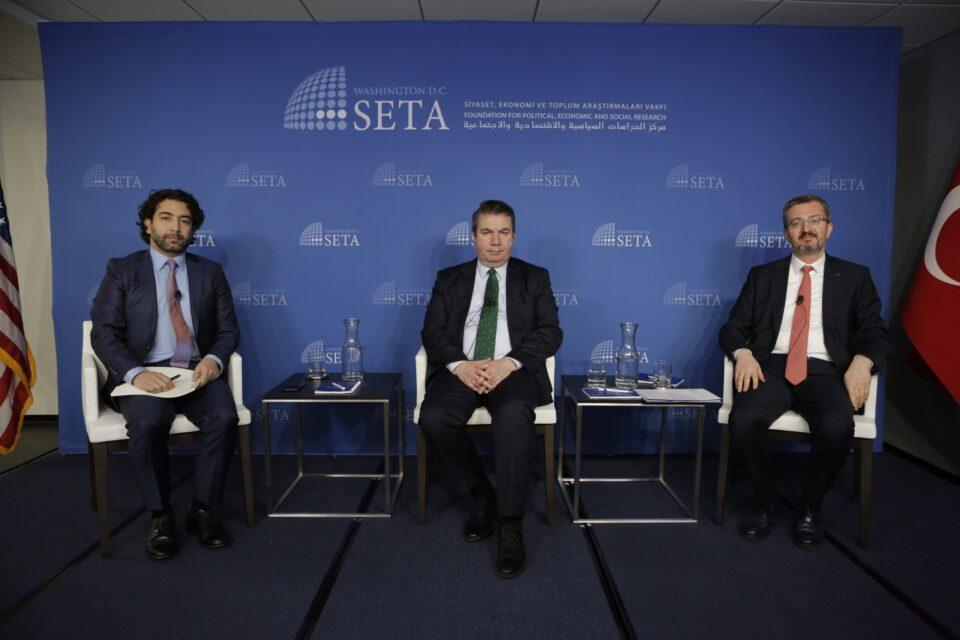
On February 7, 2019, the SETA Foundation at Washington D.C. hosted a conference titled, “U.S.-Turkey Relations.” The first panel titled, “A Conversation on the Syrian Conflict: Implications of the U.S. Withdrawal Decision” highlighted the U.S.-Turkey partnership with respect to the Syrian conflict. The second panel titled, “U.S.-Turkey Defense and Strategic Partnership” focused on security concerns for both the U.S. and Turkey and their defense relationship.
Panelists included Sedat Önal, Deputy Foreign Minister of Turkey; Burhanettin Duran, General Coordinator at The SETA Foundation; Celal Sami Tüfekçi, Deputy Undersecretary for Defense Industries; Murat Yeşiltaş, Director of Security Studies at The SETA Foundation; and Luke Coffey, Director of the Douglas and Sarah Allison Center for Policy at The Heritage Foundation. Kilic Kanat Research Director at SETA DC and Kadir Ustun, Executive Director at SETA DC moderated the discussions.
Ambassador Sedat Onal explained the historical relationship between the U.S. and Turkey by emphasizing the Turkish geopolitical position since the Cold War. Ambassador Onal he commented that both the U.S. and Turkey approaches to the Arab Spring, noting that their initial approaches were similar. While different problems emerged, he argued that both countries need to be on the same page regarding these issues, including the YPG. He stated that different working groups were established between the two countries, one group which was focused on the Manbij roadmap. He added that the working group will have to address new challenges after the U.S. withdrawal, such as a potential power vacuum.
Burhanettin Duran reflected on the meeting between Obama and Erdogan that exposed the initial disagreements over operations in Syria. He argued that there is a possibility for the two countries to restore bilateral relations. Duran mentioned that now there is a renewed possibility to redefine the roles of both countries and improve bilateral relations beginning with policies in Syria. He explained that the world is seeing an end of the liberal order and that the U.S. is discussing its role in maintaining security around the world. He commented that the U.S. involvement in crises in the region are becoming more selective and farther away from the order of the Middle East and the new realities of the Middle East.
Celal Sami Tüfekçi discussed security and defense programs. He underlined that Turkey is very ambitious in the defense industry and one of their main concerns is fighting against counterterrorism. He briefly explained U.S.-Turkey defense partnerships and noted that Turkey would like to expand further in the partnership. He mentioned that Turkey exported $2 billion in arms in 2018, $730 million to the United States. He explained how Turkey come to the s400 agreement with Russia, noting that price, production location, and technology transfers were all major concerns. He argued the U.S. and Turkey should work together to resolve concerns on the F35.
Luke Coffey contended that the two countries cannot throw away 70 years of strong relations just because of the last 7 years of weakened relations. He explained that rebuilding the relationship needs to be a process. He argued that the U.S. Congress needs to understand the financial, strategic, and legal implications of not transferring the F35s to Turkey; however, also stated that Turkish officials needs to understand and appreciate the concerns the U.S. has regarding the s400 and F35s. He argued that while the concerns may not necessarily be reality, but perceptions matter in international relations and the concerns of both countries need to be addressed. He added that defense exports should be considered another tool of foreign policy, stating that with defense exports usually joint exercises, joint training, and shared culture occur which builds into a larger and closer relationship.
Murat Yeşiltaş highlighted two reasons why Turkey changed their defense and security policies. The first was due to the changing in international dynamics in the regions and the second what Turkey becoming a strategic autonomous country in the region. He mentioned that Turkey can choose one of three defense and security models between autonomous, bilateral, and multilateral. Reflecting on the decision to purchase the s400, he argued that Turkey wants to protect its air defense system as there is an arms race happening in the region.
U.S.-Turkey Relations



